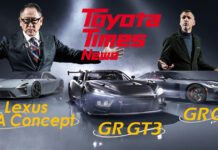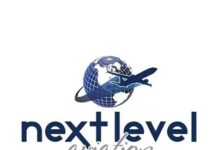University of Southern California, Upgrades to D-Wave’s Newest
Annealing Quantum Computer with 5,000+ Qubits, Accessible in the
Leap Quantum Cloud Service
D-Wave Advantage™ system housed at USC will allow scholars and businesses to study how
quantum effects may speed up complex optimization, machine learning and sampling problems
June 13, 2022: Nations across the globe have been increasing their efforts in the
advancement of Quantum technologies. The Indian government announced a National
Mission on Quantum Technologies and Applications (NM-QTA) with an outlay of ₹8,000
crore for the next five years. NM-QTA’s focus, as outlined by the Finance Minister of India
Nirmala Sitharaman, will be in fundamental science, translation, technology development
and human and infrastructural resource generation.
D-Wave first made its quantum cloud service available in India in 2020, giving developers
and researchers in the country real-time access to its quantum computers. Through this, D-
Wave’s quantum computers, hybrid solvers and the application environment can be used via
its cloud platform Leap to drive development of business-critical and in-production hybrid
applications. The number of active Leap users based in India has increased 58% since
January 2021, with India representing the third highest country in terms of Leap sign-ups
since its launch.
In a collaboration with D-Wave Inc and Lockheed Martin, the University of Southern
California (USC) was the first university worldwide to host a commercial quantum computing
system in 2011. With the upgrade to D-Wave’s Advantage™ quantum system, its first
5,000+ qubit machine physically located in the United States at USC’s Information Sciences
Institute (USC ISI), USC and D-Wave will increase the capacity for academic researchers,
government users, and the business community to continue studying how quantum effects
may speed up the solution of complex optimization, machine learning and sampling
problems, and new breakthrough results in quantum optimization. The Advantage™ system
is accessible via the Leap™ quantum cloud service.
For academic researchers at USC, this upgrade is an opportunity. “The Advantage™ system
provides a four-fold increase in the number of qubits from our previous system as well as
increased coherence and other performance metrics,” said Daniel Lidar, holder of the Viterbi
Professorship of Engineering at USC, and the scientific and technical director of the USC
Quantum Computing Center.
“For more than a decade, research and education in Quantum Information Science (QIS) at USC
Viterbi has been thriving and constantly growing. Quantum Information Science is a top priority
research area,” said Yannis C. Yortsos, Dean of the USC Viterbi School of Engineering.
USC faculty have mentored a new generation of Ph.D. students in QIS, who now have
leadership positions in academia and the industry, Yortsos noted. The school has also
established a new master’s degree in quantum information sciences, with current worldwide
student demand growing steadily.
“We have great hopes for the new system as we explore coherent quantum annealing to
achieve quantum speedups in quantum simulation, best-in-class optimization and machine
learning. Some of our first projects will be to investigate speedup over classical optimization
methods for hard optimization problems as well as pursuing additional government-funded
research for identification and classification of quantum phase transition,” added Lidar.
“Eleven years ago, together with Lockheed Martin, we installed our first quantum system at
USC,” said Alan Baratz, the CEO of D-Wave Systems. “Fast forward to today, delivering one
of the most performant commercial quantum computers in the world yet again allows users
to harness the power of annealing quantum computing for real-world optimization problems,
all accessible real-time through our Leap quantum cloud service and in AWS’s Amazon
Braket.”
Businesses will benefit from the commercial use-cases that can be run on the quantum
hybrid solver service. To date, D-Wave’s customers have developed hundreds of early
quantum applications in an array of fields such as financial modeling, flight planning,
quantum chemistry simulation, automotive engineering, health care, logistics and more.








































